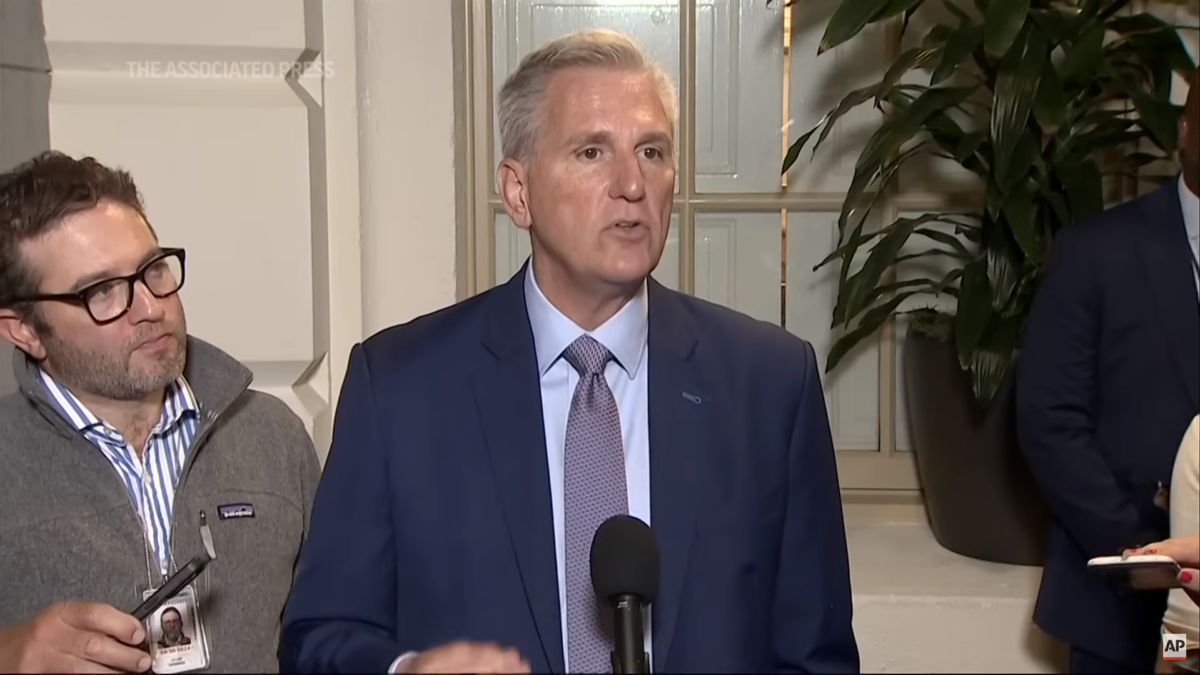
Congress has returned to doing what it loves most: spending money we don’t have. Increased spending in the latest bipartisan budget deal, along with the recent Republican tax cuts, will vastly increase the deficit.
Principled conservatives objected, but were ignored in the scramble to give the American people what they want: more government spending without having to pay for it. Both parties are happy to deliver. With some worthy exceptions, Republicans who had bitterly criticized the “Obama deficits” are now eagerly embracing enormous Trump deficits.
This is sinful, but few people think of government deficits in such terms. This is not due to any reticence about political moralizing per se. Much of our political discourse now consists of dismissing our opponents as moral monsters and declaring “I’m better than you.” Why, in this atmosphere, is deficit spending one of the few issues about which more moralizing might be in order?
There seem to be two main factors behind our disinclination to describe persistent deficit spending—and the massive national debt it produces—as a moral wrong. The first is that the national debt doesn’t seem real to us; it is just numbers somewhere in the ether. Even people who consistently oppose reckless deficit spending tend to treat it abstractly. The second is that both parties are thoroughly guilty of contributing to the problem, so partisans have a strong incentive to be indulgent on the subject.
The National Debt Steals People’s Futures
Nonetheless, this is a moral problem. Our national debt steals from other people’s futures in a way that mere personal debt does not. For instance, if I borrow money, whether for a house, a car, an education, or a shiny new cell phone, I am the one who will have to pay it back or suffer the consequences (harassment by collection agencies, repossession, bankruptcy, and so on). The debt is mine, and so are the consequences if I borrow more than I can repay.
But while the money we’re borrowing as a nation will have to be paid back, those doing so will not be the people who get it. Federal deficit spending is not like going into personal debt. It is like grandma going on a binge with her grandchildren’s credit cards. It is parents signing away their children’s future for some government handouts now.
It is wrong to place our children and grandchildren under enormous debt. It is a sin against them. But we don’t think of deficit spending that way. Parents and grandparents who otherwise work hard to help their children and grandchildren succeed have no compunction about burdening them with endless budget deficits resulting in a crushing national debt.
This is not only because the deficit and debt seem remote in a way that personal credit card bills are not, but also because many people are unaware that the sources of the deficit are some of the federal government’s most popular programs: Social Security, Medicare and Medicaid, and military spending. Few people want to cut these, and the next largest expense is paying the interest on our nation’s existing debt, which can’t be cut without causing a global financial crisis.
There is no easy solution, though voters enjoy being lied to and told that one exists (if only the other party weren’t obstructing it). As ridiculous as some federally funded programs can be (e.g., Harry Reid’s cowboy poetry), they aren’t the real problem. The deficit cannot be fixed by cutting foreign aid or the National Endowment for the Arts, or by taxing the rich just a bit more. It cannot be fixed by addressing “waste, fraud and abuse.” The real money is spent on the military and middle-class welfare programs.
Yes, Your Favorite Government Programs Are Welfare
And they are welfare programs, even if that appellation makes many beneficiaries uncomfortable. Social Security is a not a retirement account the government maintains for you. It is a transfer program, in which today’s workers are taxed to pay today’s retirees and the disabled. The amount someone pays in is not what he or she will get out, and many people receive far more in benefits than they paid in.
Likewise, Medicare is not a health savings account administered by the government. It is an incredibly expensive welfare program in which those currently working pay for the health care of the elderly and disabled, with lifetime costs for beneficiaries usually far in excess of what they paid into the program.
That these are welfare programs does not mean they should be eliminated. Wealthy societies with strong economies can afford some welfare spending, or even a lot of it. However, honesty about what these programs are and what they are for is necessary if we are to keep from being bankrupted by them. We must face the reality that the typical welfare queen isn’t a black mother in the inner city, but a middle-class white retiree.
Refusing to Pay for This Welfare Is Immoral
If we want generous middle-class benefits, we will need to drastically cut defense spending and raise taxes, including on the middle class. If we are not willing to do that, then we need to reform our entitlement programs to be sustainable. Either way, the sooner we address these problems, the less painful the adjustment will be. The more indebted and dependent our nation is, the more it will hurt when we run out of easy credit.
But right now, politicians (who are well aware of the problems of endless deficits) are terrified of voters punishing them for any changes. Both parties have campaigned on protecting entitlements, and both have attacked the other for attempting reform. Young voters, who will lose the most on our current trajectory, are often disengaged and besotted with adolescent socialist fantasies.
Meanwhile, retirees and near-retirees vote. They aren’t keen on politicians who raise taxes or cut military spending, and they will annihilate any politician who threatens their government checks and health care. The youth are checked out or feeling the Bern, while their elders are selling them down the river.
The electoral math suggests that there will be no reform or restraint except what will eventually be forced on us by the pitiless math of accounting and economics. That will be a painful reckoning. The consequences will be severe, and those who oppose putting our national finances in order are sinning against their children and grandchildren.









